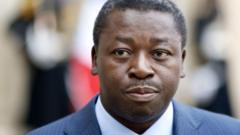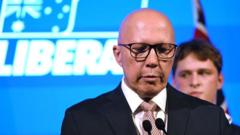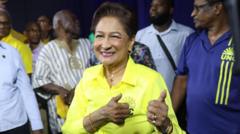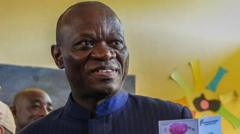Faure Gnassingbé has been sworn in as Togo's President of the Council of Ministers with no term limits, following constitutional reforms that have eliminated presidential elections. Critics view this as a maneuver to prolong his family's 58-year rule in the country.
Togo's Gnassingbé Sworn in as Council Head, Cementing Lifelong Rule

Togo's Gnassingbé Sworn in as Council Head, Cementing Lifelong Rule
Faure Gnassingbé's new role as President of the Council of Ministers raises concerns of indefinite leadership in Togo amid constitutional changes.
Faure Gnassingbé has officially assumed the position of "President of the Council of Ministers" in Togo, a role that now holds the highest authority within the government and lacks any term limits. This development comes in the wake of a controversial constitutional reform that abolished presidential elections while implementing a parliamentary system. Critics, particularly from the opposition, argue that these changes are strategically designed to enable Gnassingbé to maintain his grip on power indefinitely.
The lineage of power in Togo stretches back 58 years, with Gnassingbé taking over in 2005 after his father's lengthy reign of nearly forty years. The recent constitutional revisions, passed by lawmakers last year, have drawn sharp criticism, being labeled an "institutional coup d'état" by opponents of the administration. Although there was significant public backlash that led to a temporary pause in some reform aspects, the government has now proceeded with Gnassingbé’s new appointment.
Upcoming municipal elections scheduled for July will be the first conducted under this new constitution, which fundamentally shifts the governance structure from a presidential to a parliamentary model. Theoretically, the title of President of the Republic has been relegated to a ceremonial role, yet experts suggest that Gnassingbé’s authority is reinforced through this pivotal new position as council president.
Gnassingbé's ruling party, the Union for the Republic, secured a remarkable victory in last year’s parliamentary elections, claiming 108 out of 113 seats in the National Assembly. As the political landscape of Togo transforms, questions about democratic integrity and the prospects for opposition arise within a nation with a complicated history of governance.



















